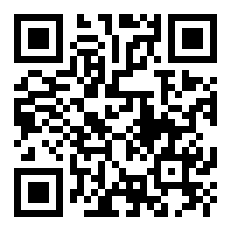Protecting Nigerian languages from extinction in the face of globalization: The Ibibio perspective
DOI:
https://doi.org/10.60787/jnlp.v6i2.72Keywords:
language, extinction, preservation, globalization, revitalisationAbstract
Many Nigerian languages are becoming moribund, with some no longer widely spoken and others already extinct. For instance, the Efut language of Calabar Municipality and the Kiong language of the Okoyong people, both in Cross River State, have completely disappeared. This decline is partly due to the reluctance, whether overt or covert, of native speakers to use their languages in everyday communication. Additionally, colonialism and the intensifying forces of globalization in the 21st century have exacerbated the problem.
The Ibibio language is among those at risk. Many young speakers, who should serve as its custodians, are increasingly ashamed to use it, both in public and within the home. Beyond the lingering effects of colonialism, a major challenge is that many parents actively discourage their children from speaking Ibibio. Furthermore, the language is rarely taught in schools as a subject for assessment and examination. This lack of institutional support, combined with social stigma, drives many to prefer English, even in cultural contexts where indigenous languages are more appropriate.
This paper advocates for a revitalization strategy that includes: the teaching of Ibibio from nursery to secondary school; its use as a medium of instruction in select subjects, as practiced in countries such as China, Japan, Russia, and the Nordic states; active use by parents in the home; and a reduction in the dominance of English in churches, health centres, and social gatherings. The study adopts historical and multidisciplinary approaches in its methodology.
References
Elugbe, B. & Udoh, I. (2006). Documenting endangered Nigerian languages: challenges and
constraints. Proceedings of the UNESCO/NCAC Workshop on Best Practices to Safeguard Nigerian Endangered Languages. Ed. Lizzy Ihezue and Onukwugha O. Osuji, Abuja: UNESCO Abuja.
Hall, J. W. & Grayson, J. (2005). History of the World: Earliest Times to the Present Day, North Dighton: J. G. Press.
Mayhew, S. (2009) Oxford Dictionary of Geography, Oxford: Oxford University Press. Nigerian Educational Research and Development Council. (2014). Federal Republic of Nigeria National Policy on Education. 6th Edition. Lagos: NERDC Press.
Nigerian Educational Research and Development Council (2021). Sociolinguistic survey of language diversity and use in Nigeria. NERDC Press: Lagos.
Nigerian Educational Research and Development Council (2022). Federal Republic of Nigeria National Language Policy. NERDC Press: Lagos.
The Punch, July 19, (2020). P. 12.
Uya, E. O. (2005) African Diaspora and the Black Experience. New World Slavery. Calabar: Clear Lines Publications.











